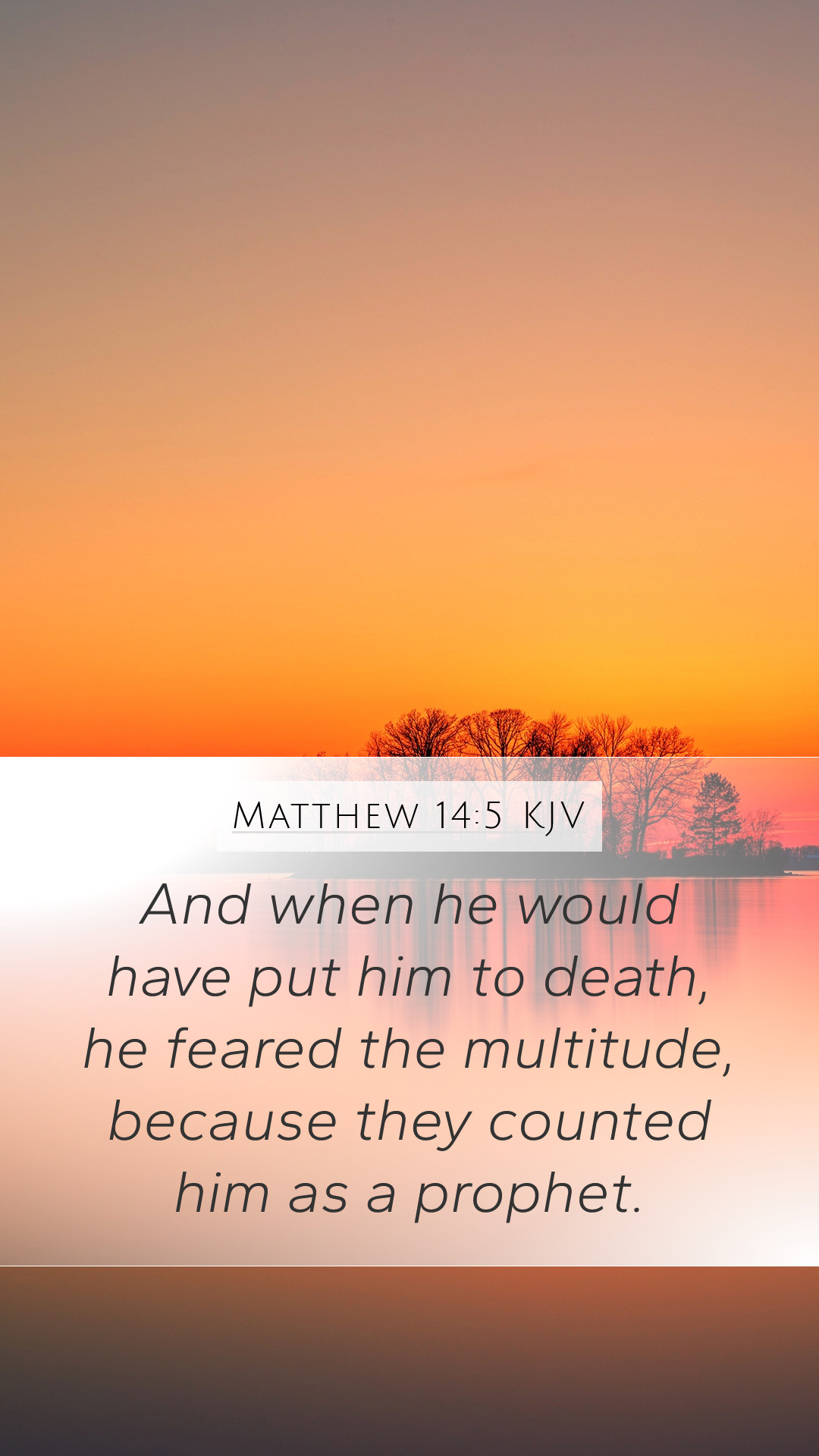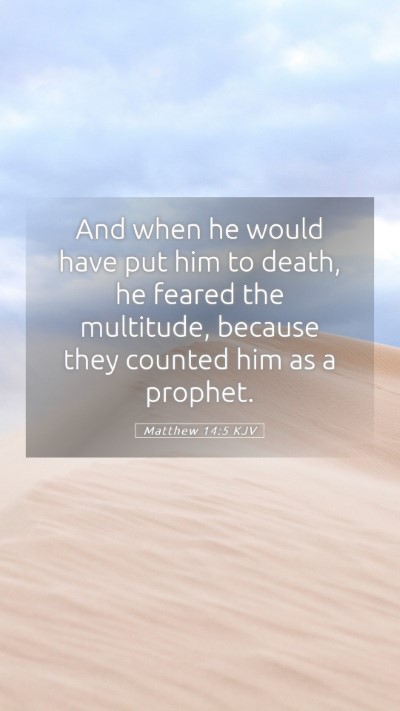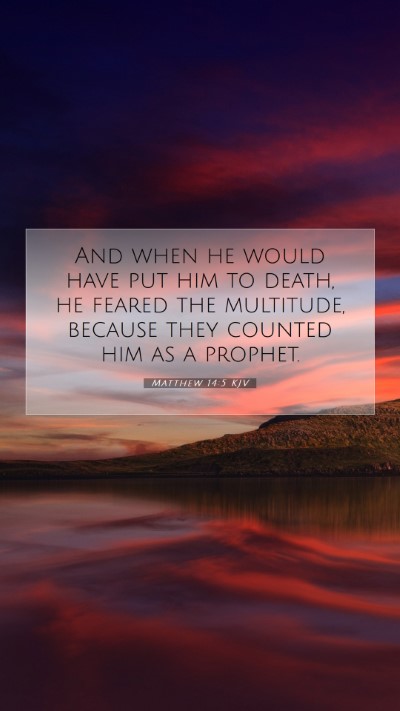Understanding Matthew 14:5: A Comprehensive Bible Verse Commentary
Matthew 14:5 states, “And when he would have put him to death, he feared the multitude, because they counted him as a prophet.”
Context and Overview
This verse is set within the narrative of John the Baptist and his tumultuous relationship with Herod Antipas. The significance of this passage lies in the dynamic between power, public opinion, and moral conviction. At this point in the Gospel, Herod is faced with a dilemma regarding John the Baptist, a man recognized by many as a prophet.
Verse Explanation
-
Fear of Public Perception:
According to Matthew Henry's Commentary, Herod's fear illustrates an eternal conflict between political authority and moral integrity. Herod acknowledges the multitude’s view of John as a prophet, which consequently stirs his conscience. This fear suggests that public opinion can influence leaders, even when they are determined on a certain path.
-
Herod's Inner Turmoil:
Adam Clarke’s Commentary elaborates on Herod's inner turmoil, showing that he recognizes John's righteousness. His fear of the multitude reflects a struggle between personal desire (to silence John) and the potential backlash from the people who revered John. This tension highlights the broader theme of the conflict between truth-telling and power.
-
The Role of the Multitude:
Albert Barnes' Notes on the New Testament expounds on the influence of the multitude, emphasizing that public sentiment often holds considerable sway over the actions of leaders. Herod’s fear was rooted in the fact that killing John might incite the people against him, revealing the inherent checks and balances in societal influence on governance.
Significance of the Verse
The verse encapsulates a critical moment illustrating how fear of public disapproval can lead to inaction or hesitation in leaders, even when making hard moral choices. It prompts readers to reflect on the implications of leadership, the power of prophetic voices, and how society values these figures.
Related Biblical Themes
- Moral Responsibility of Leaders: The hesitance shown by Herod can be related to modern discussions on the responsibilities of leaders in reflecting their constituents’ values without sacrificing personal integrity.
- Public Opinion and Social Justice: This verse challenges readers to consider the extent to which public opinion should shape moral decisions.
- The Power of Prophecy: It sets up discussions about the role of prophets both historically and in contemporary society, emphasizing their importance in guiding righteousness.
Cross References
- Matthew 14:1-2 - Background on Herod's perception of Jesus.
- Luke 3:19-20 - John the Baptist’s confrontation with Herod.
- Matthew 21:26 - The people's reaction to John's ministry.
Application of Insights
For those looking at Bible study insights, interpreting Matthew 14:5 can guide discussions in bible study groups about how we respond to voices of authority and the importance of listening to the righteous challenges presented by spiritual leaders. It implies the need for courage in the face of public opinion.
Whether conducting an online Bible study, using Bible study tools, or leading Bible study lessons, this passage provides ample material for discussion on ethical leadership and moral courage. It also encourages deeper examination into how to interpret Bible verses through historical and contextual lenses.


